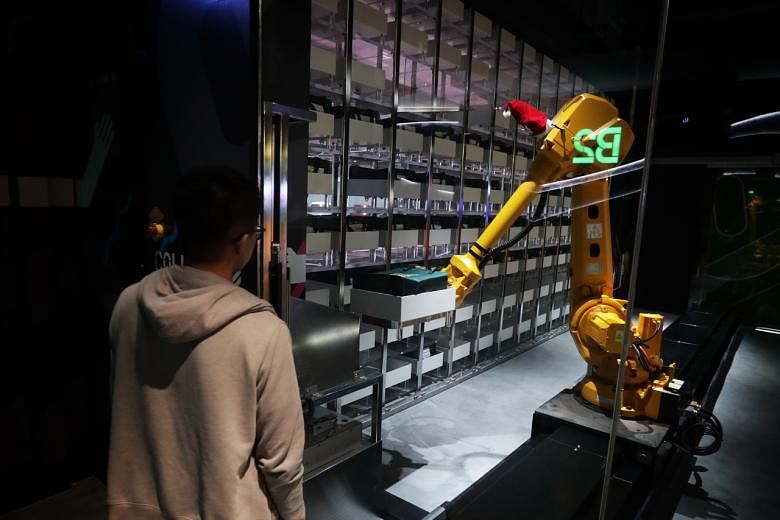SINGAPORE - Industry-led coalitions have been formed in seven key growth areas such as robotics and environmental sustainability, to devise ideas for projects and generate new jobs, said Deputy Prime Minister Heng Swee Keat on Saturday (June 20).
These Singapore Together Alliances for Action - partnerships between industry players and the Government - will aim to rapidly prototype new ideas in a bid to grow the country's economy.
They were set up by the Emerging Stronger Task Force, which the Government convened in May to help Singapore seize new opportunities in the aftermath of the coronavirus pandemic.
Addressing the nation in the sixth and final televised broadcast on Singapore's post-Covid-19 future, Mr Heng noted that the task force is "consulting widely, and involving people from a wide spectrum of society while putting ideas into action quickly".
On the industry-led alliances, he said these will explore and execute new ideas in the coming months in seven areas: robotics, e-commerce, environmental sustainability, digitalisation of supply chains and the built environment, education technology as well as enabling safe travel and tourism.
"The key is speed and agility. Successful projects will become new shoots of growth, and generate new jobs," he said.
The alliances will generate ideas in a three-month period, and share preliminary results and next steps later this year.
The task force will then determine which ideas and focus areas can be scaled up.
Elaborating on the seven growth areas, the task force said digitalisation has been a key thrust of industry transformation blueprints under the Future Economy Council's Built Environment (BE) Cluster.
It noted that the Covid-19 crisis has increased collaboration across all parts of the BE value chain. There is thus an opportunity to raise productivity by speeding up digitalisation in areas from concept and design, to construction and site management, and facilities management.
The second alliance will look at education technology.
The adoption of such technology has been accelerated by the pandemic, from home-based learning to online professional education and training. "This is an opportunity for Singapore to take our education and human capital brand global," said the task force.
A third alliance will focus on enabling safe and innovative visitor experiences, given how Covid-19 has fundamentally changed travel and tourism.
Singapore must find new ways to enable safe transit, business and leisure travel and tourism as the world returns to a new normal, to ensure it remains a global-Asia node and a leading hub for business and enterprise in the Asia-Pacific, said the task force.
The fourth alliance is focused on creating a smart commerce ecosystem that blends digital and physical retail, and allows local stores to tap into the global consumer market.
"Such a system would require the complete reimagination of the online and offline shopping experience," said the task force.
Covid-19 has accelerated e-commerce adoption among consumers and retailers, especially small and medium-sized enterprises (SMEs), it noted, adding that physical retail is likely to remain due to the convenience of neighbourhood stores and retail hubs situated next to transport nodes such as MRT stations and bus interchanges.
The fifth alliance will look at robotics, as Singapore pursues higher productivity and navigates manpower challenges.
"At the centre of this is the use of technology and robotics solutions to improve productivity, transform existing jobs and create new ones, generate spin-offs for SMEs, and drive economic growth," said the taskforce.
Singapore also has to adopt innovative solutions to minimise social contact and maintain high health standards during the pandemic, from cleaning and construction robots to autonomous healthcare and public land transport systems, it noted.
The sixth alliance will focus on the digitalisation of supply chains.
"Digitalisation of global supply chains has been uneven and hampered by low adoption, lack of data sharing, and a preponderance of different platforms," noted the task force.
With growing concerns over supply chain resilience and a likely shift towards regionalised supply chains after the pandemic, there will be an increased demand for end-to-end adoption of such technology, it said.
This provides an opportunity to advance the use of digitalisation technology among local logistics, regulatory, and financial players and cargo owners.
Lastly, the task force said the focus on sustainability and environmental, social, and governance standards is likely to increase post-Covid-19.
Singapore could become a centre for such solutions and services, serving both local and global demand, it added.
The services can leverage on Singapore's strengths in policy frameworks, technology, financial and legal ecosystems, said the task force.












